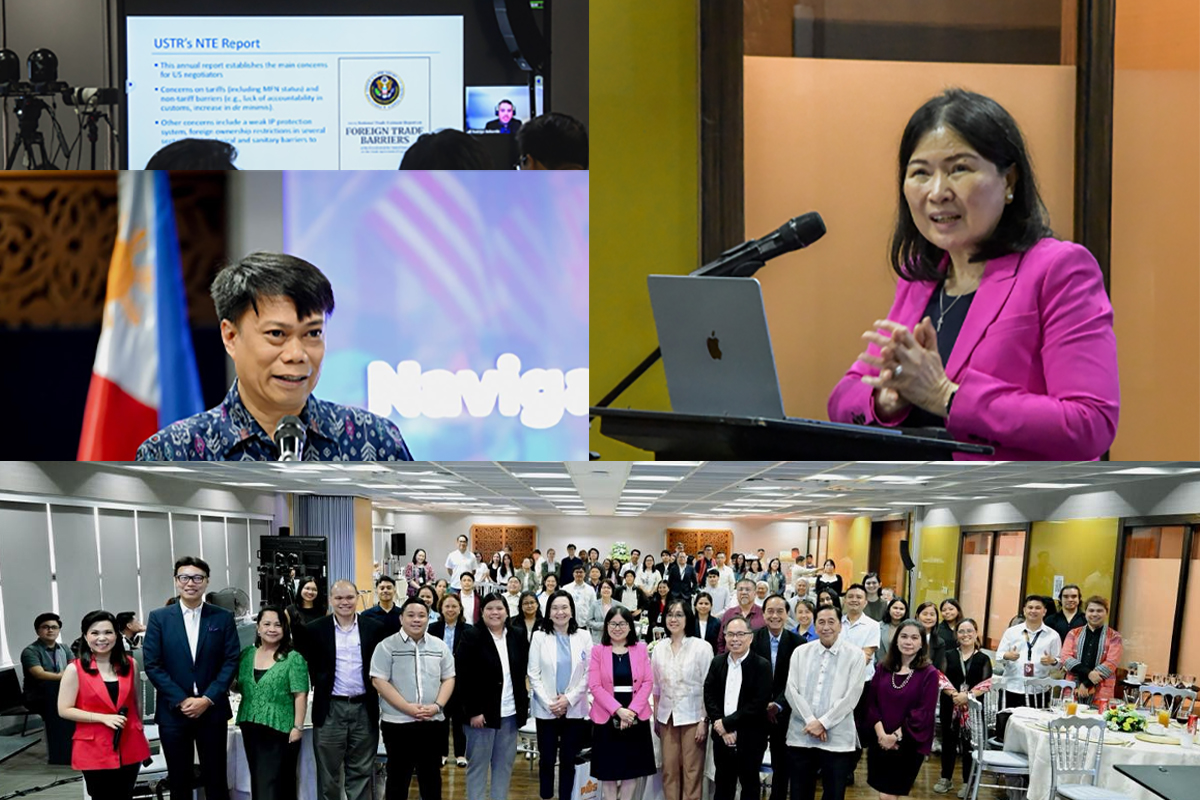In a forum held on 27 May 2025 at the Ateneo School of Law’s Justitia Hall, a cross-section of experts from government, business, and academia tackled the challenges and opportunities brought about by recent upheavals in the global trading system. The event, titled “Trade Wars and the Evolving Post-Globalization International Trading Order”, was organized by the Chief Justice Claudio Teehankee Center for the Rule of Law in partnership with the Ateneo Graduate School of Business and the Ateneo School of Law. The forum was moderated by former Secretary of the Department of Trade and Industry and a member of the faculty of the Ateneo Law School, Atty. Adrian Cristobal, Jr.
Dean Jose Maria Hofileña of the Ateneo School of Law opened the forum by highlighting how recent US tariff measures have thrust international trade issues into the public consciousness. He emphasized the need for interdisciplinary perspectives to fully appreciate the repercussions of trade disruptions.
Dr Rafaelita Aldaba, Emeritus Research Fellow at the Philippine Institute for Development Studies, presented a data-rich analysis showing how geopolitical rivalries and national security concerns are fragmenting global trade. She introduced her “Tariff Exposure Composite Index,” which ranked the Philippines as moderately exposed to U.S. tariff hikes, compared to Vietnam and Thailand, which face higher risks. She called for an integrated industrial strategy that aligns trade, investment, and digitalization to reposition the Philippines in global value chains.
Ambassador Manuel A J Teehankee, the Philippines’ Permanent Representative to the World Trade Organization, reinforced the strategic importance of ASEAN centrality, warning against the global drift away from multilateralism toward bilateralism and protectionism. He underscored the importance of defending the WTO and rules-based trade, while urging the Philippines to seize opportunities presented by re-globalization and regional trade restructuring.
Ms Maritess Jocson-Agoncillo, Executive Director of the Confederation of Wearable Exporters of the Philippines (CONWEP) stressed that the apparel and footwear sector remains heavily reliant on the U.S. market. She warned that without exemptions or special treatment, tariffs could threaten the viability of small exporters and proposed sector-specific negotiations with the U.S.
Mr. Norberto “Bing” Viera, Chairperson of the Semiconductor and Electronics Industry (SEIPI) and President/Country Manager of Amkor Technology Philippines, noted that the electronics sector is relatively insulated from direct tariff shocks but faces long-term risks from the reshaping of supply chains. He emphasized the urgent need for the Philippines to move up the value chain and invest in integrated and modular technologies.
Prof. Antonio del Carmen of the Ateneo Graduate School of Business emphasized that while trade disruptions pose risks, they also present opportunities. He called on the private sector to step up in the absence of consistent industrial policy and highlighted the importance of services and human capital development as complementary strategies.












